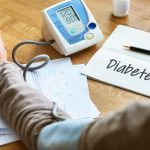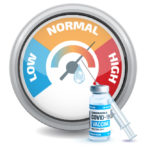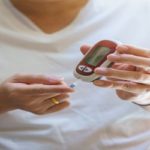Diabetes
NFHS-5 (2019-21) Finds Indians Have More Health Risk Than Previously Recorded In NFHS-4 (2015-16)
Indians have become more obese, hypertensive, and prone to diabetes according to the F Ministry of Health and Family Welfare report from the latest National Family Health Survey 2019-21 (NFHS-5). The survey gathered information from 6,36,699 households across the country, with field work occurring from June 2019 to April 2021.
The key results were as follows:
- Proportion of women who are overweight or obese increased from 20.6% in the NFHS-4 (2015-16) survey to 24.0% in NFHS-5.
- Proportion of men who are overweight or obese increased from 18.9% in the NFHS-4 (2015-16) survey to 22.9% in NFHS-5.
- Percentage of women and men with blood sugar level more than 140 mg/dl or taking medicine to control blood sugar level were found to be 13.5% and 15.6% respectively.
- Percentage of women and men with elevated systolic blood pressure greater than or equal to 140 mmHg and/or Diastolic blood pressure greater than or equal to 90 mmHg or taking medicine to control blood pressure were found to be 21.3% and 24.0% respectively.
It can be inferred from this nationwide study found that there has been a rise in multiple health risk parameters, during the period that coincides with COVID-19 global pandemic.
International Institute for Population Sciences (1IPS) and ICF. 2021. National Family Health Survey (NFHS-5), 2019-21: India. Mumbai: HIPS. India Fact Sheet. http://rchiips.org/nfhs/NFHS-5_FCTS/India.pdf. Accessed on 01-12-2021.
Image link: https://www.freepik.com/free-photo/woman-standing-scale_2770407.htm#page=1&query=fat%20man&position=30&from_view=search

Urban India Sicker than Rural India, says NHFS-5 (2019-21)
Read More

Structured Blood Glucose Monitoring (BGM) vs. Continuous Glucose Monitoring (CGM) – What Leads to Improved Glucose Control?
Read More

Can a Telemedicine Management System Improve Self-Management and Treatment of Overweight/ Obese T2DM Patients?
Read More

Associations Between Poor Glycemic Control and Breakthrough SARS-CoV-2 Infection
Read More

Are Digital Diabetes Prevention Programs (d-DPPs) Effective in Improving Outcomes in Prediabetics?
Read More

Why Dietary Carbohydrate Restriction is Beneficial for T2DM Patients?
Read More

Is the ‘Plate Model’ an Effective Strategy for Improving Glycemic Control in T2DM Patients?
Read More

What is the Significance of Glycemic Variability in Diabetes Mellitus?
Read More

Can Foot-Ankle Exercise Intervention Programs Improve Gait Speed in People with Diabetic Neuropathy?
Read More

Is There An Association Between Antidepressant Use and Advanced Diabetes Complications?
Read More

Are Patients with T2DM at a Higher Risk of Experiencing Antibiotic-Resistant Bacterial Infections?
Read More

Can Textured Soybean Protein Consumption Improve Blood Biochemistry in Patients with T2DM?
Read More

Adding Liraglutide To SGLT2i And Metformin Regimen Improves Glycemic Control
Read More

Dapagliflozin improves albuminuria in patients with high cardiorenal risk
Read More

Higher Dose Of Semaglutide Found Safe For Additional Glycemic Control
Read More
